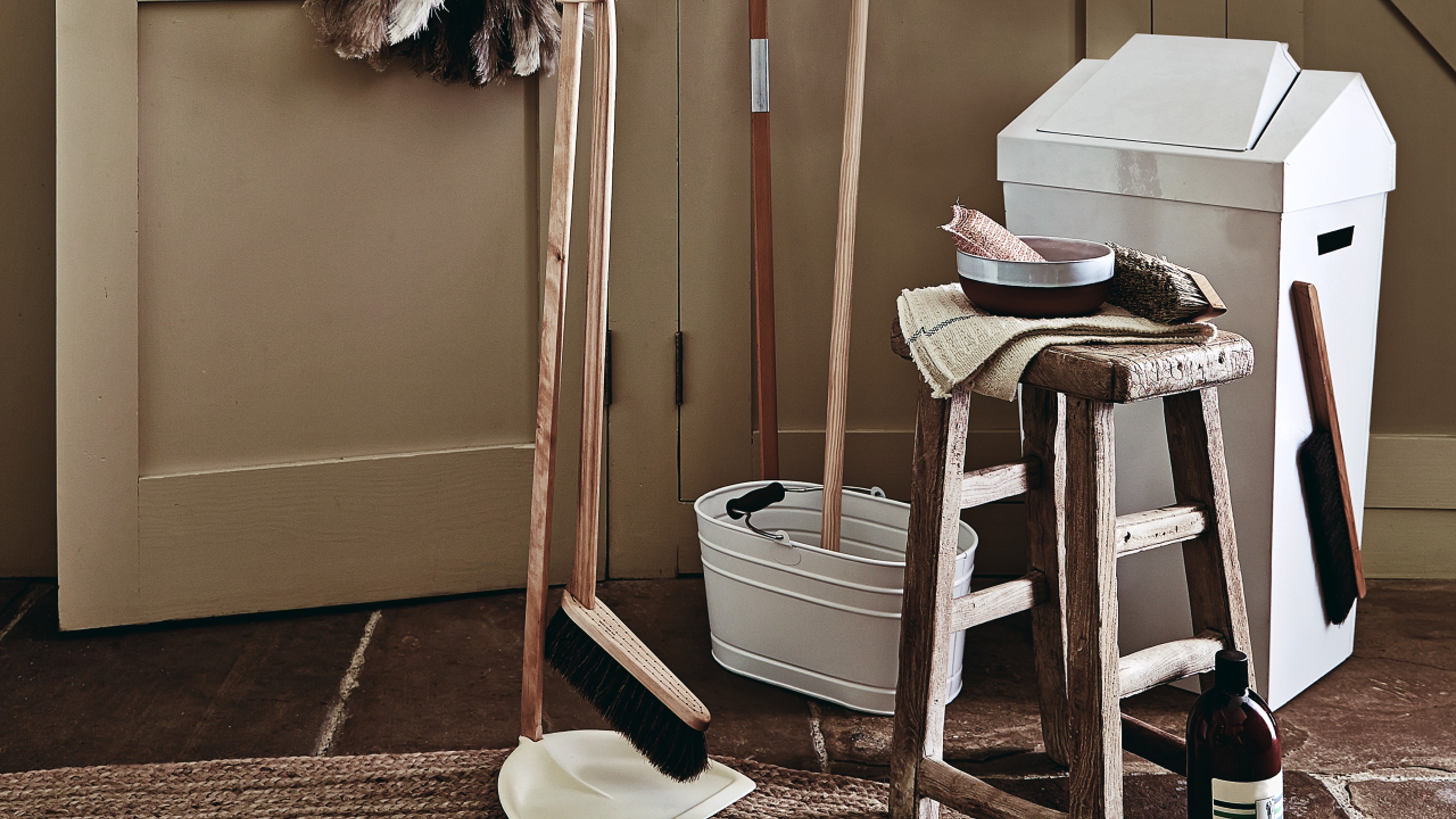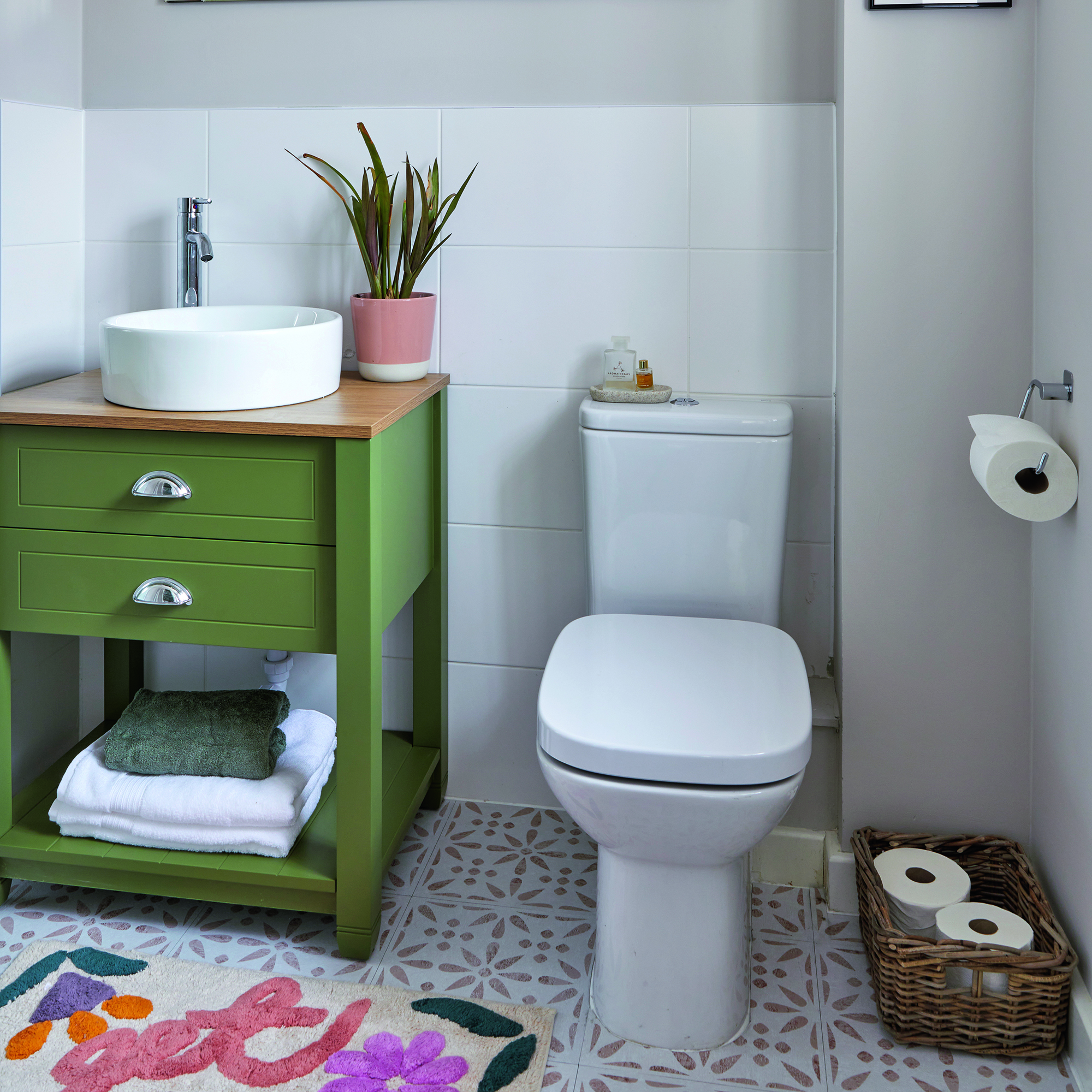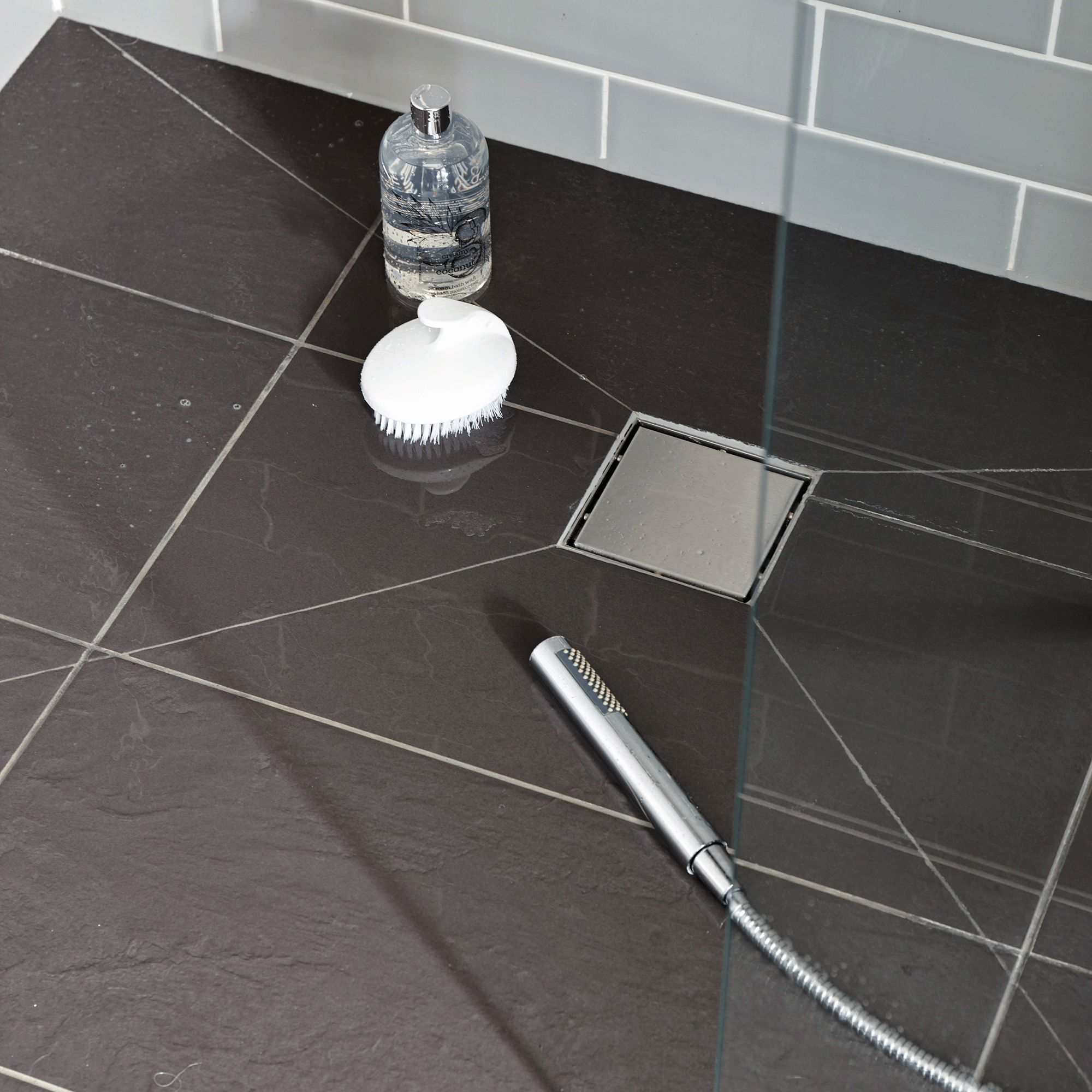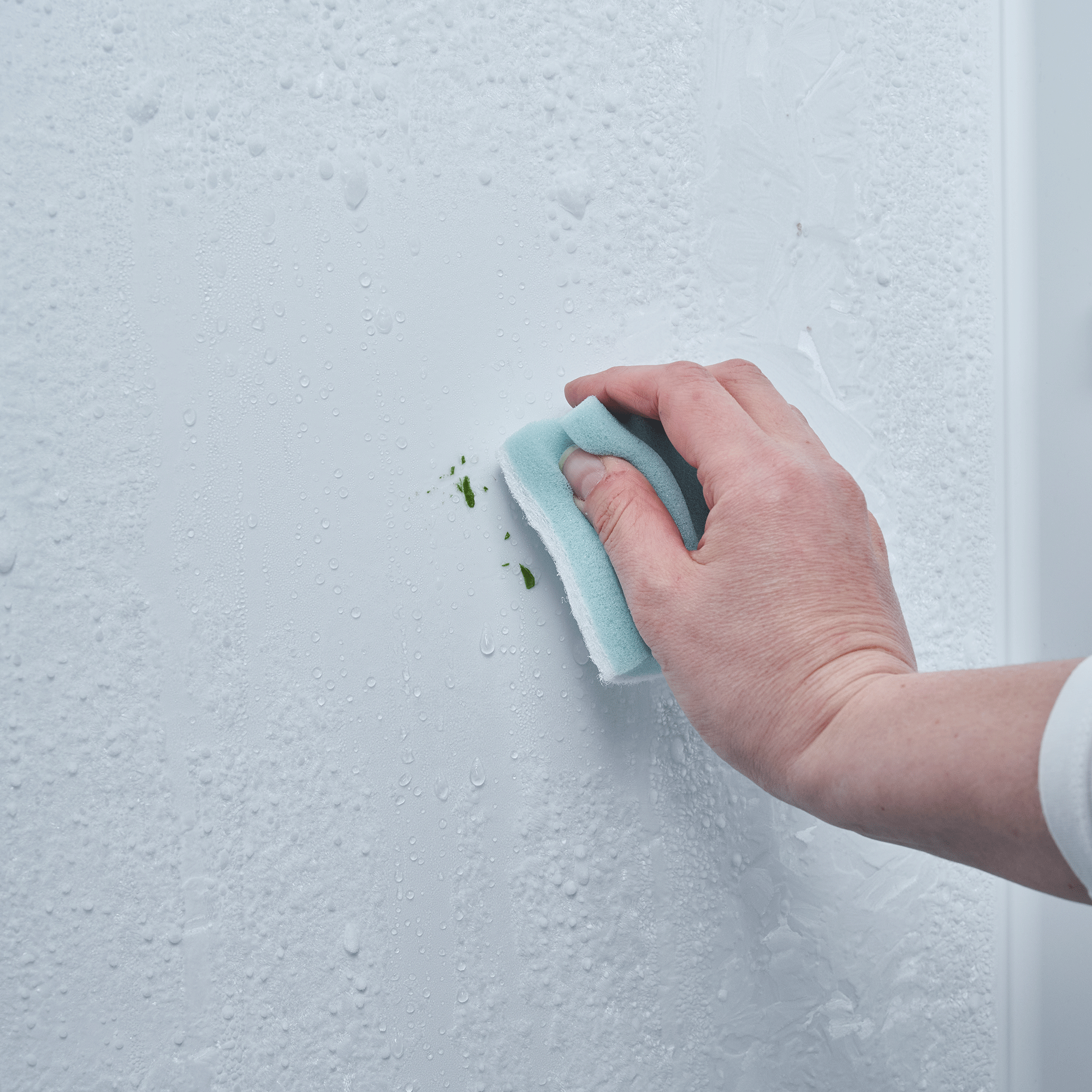7 cleaning products that experts warn are potentially harmful to you and your home
These are the cleaning products and agents you should be extra wary of using


Cleaning products are something we all rely on to keep our homes sanitary, and fresh. Using them regularly is a surefire way to kill germs, bacteria and all sorts of other nasties – and what could be bad about that? But not all cleaning products and agents are necessarily as harm-free as they may seem. In fact, there are some cleaning products that can be harmful.
Many of the best cleaning products are made with potent chemicals which – while they effectively do the job of cleaning grime from our homes – can have an adverse effect on our respiratory systems, our skin, and certain areas of our home if not used in the right place, or in the right way.
In fact, a 2021 study published in the British Medical Journal looked at whether cleaning professionals were more prone to health issues due to their frequent use of cleaning products, and found that there was a correlation.
'In the last decade, a consistent and growing evidence of an epidemic of ‘asthma-like’ respiratory symptoms among occupational cleaners has been reported worldwide,' the study says. 'In addition, a recent large population-based study found an increased risk of spirometrically-defined chronic obstructive pulmonary disease (COPD) among cleaners.'
So which cleaning products might have the most risks attached to them?
7 cleaning products that can be harmful
It's important not to feel too spooked about using your favourite cleaning products, when you're about to tackle any spring cleaning hacks, but it's also vital that you're aware of the potential health hazards many of them can present if used without precautions.
Being aware is essential, and for some, you may want to swap potentially harmful options entirely for those with less risks. There are plenty of natural cleaning hacks to help you achieve a sparkling home.
Sign up to our newsletter for style inspiration, real homes, project and garden advice and shopping know-how
To help clue you in, these are the cleaning products and agents that could be harmful to our health, and our homes, according to the experts.
1. Cleaning products with ammonia
Ammonia is a very strong industrial chemical that's commonly used in things like glass cleaners and some floor cleaners, according to cleaning expert Baqir Khan, owner at Extreme Cleaning. You might also find it in some garden fertilisers, toilet cleaners or bathroom cleaners.
According to Baqir, inhaling too much of a cleaning product with ammonia in it can be damaging to your health, even if it’s in small amounts. He explains, 'Ammonia can cause irritation to the respiratory system, skin, and eyes. And for those who have respiratory diseases like asthma, it can affect them more, too.'
And that’s not all; ammonia should also never be used on certain surfaces, Baqir explains. 'It can damage surfaces such as laminate, and it's also not suitable for use on wood surfaces, which is something to bear in mind.'
In order to minimise any adverse health effects from ammonia, it can be wise to ensure you wear gloves and perhaps even a face mask when using it.
2. Bleach-based cleaning products

Bleach is obviously a strong and potent cleaning chemical used in an array of cleaning products (mostly toilet cleaners, bathroom cleaners, and disinfectants generally) – and there’s a reason it’s so popular when it comes to cleaning our bathrooms.
Its active ingredient is sodium hypochlorite, which is incredibly effective at instantly sterilising any strains of bacteria, fungi and viruses.
However, the strength of bleach can have a detrimental effect on our health, making it one of those cleaning products that can be harmful. 'Exposure to bleach can really irritate the eyes and respiratory system,' Baqir says. Cleaning expert Laura Dent, owner of So Fresh & So Clean, agreed that its corrosive nature can be 'very harmful to the skin if it makes contact.'
In the home, bleach can be just as harmful as it can be helpful. Baqir explains, 'Regular use of bleach can weaken and discolour surfaces, such as countertops, tiles, and grout. It may also corrode metal surfaces.'
To minimise the potential risks of using bleach around the home however, there are steps you can take. 'Keep the room well ventilated, open windows and stay clear of using chemicals like bleach in small confined spaces,' Laura says.
3. Synthetic fragrances in cleaning products
It might surprise you, but one of the most potentially harmful cleaning products is those with strong added fragrances, according to Laura – especially given the sheer amount of them we likely have in our home. Because which cleaning products do you use that aren't scented in some way?
'The most important thing to consider with household cleaning products is fragrance,' she says. 'As a professional cleaner, understanding COSHH (a set of regulations protecting workers from certain substances, short for 'Control of Substances Hazardous to Health') is a huge part of our expertise, and it is well known in our industry when purchasing products for ourselves and our team, that heavily fragranced products are not suitable for everyday use.'
So what is it about the synthetic fragrances used in so many cleaning products that can prove so detrimental to our health?
Most fragranced cleaning products contain VOCs (volatile organic compounds), which means they hold a variety of potentially damaging chemicals. 'These chemicals do not clean, or increase the effectiveness of a product – they are intended to convey a scent or mask an odour only, which makes them both pointless and harmful,' Laura says.
'And even natural fragrances such as citrus can produce dangerous pollutants inside your home,' she points out.
The effects of these fragrances on our health are clear, Laura explains. 'The synthetic musks in air and fabric fresheners are proven to trigger allergies, and even induce asthma in people who have not previously suffered.'
So in an ideal world, avoid cleaning products that are overly fragranced, or use them sparingly (and certainly not daily) if you do use them.
4. Drain unblockers

When it comes to how to clean a sink, a good liquid drain unblocker is essential for many of us for clearing build-ups in our showers, kitchen sinks or bathroom sinks.
By their very nature though, they can be seriously harmful. 'Drain unblockers are extremely corrosive, which they have to be to clear the blockages in your pipes,' Laura points out.
'When it comes to potential damage to you and your home, they can damage chrome plated taps and plugs if accidentally spilt, and can cause severe burns to the skin, and respiratory problems if not used in a safe way.'
As such, it's important to ensure you are using drain unblockers carefully. You should, for example, wear thick gloves to avoid any spills on your hands, and make sure to pour it directly down the drain, avoiding contact with the rest of the surface if possible.
Ensure there is ventilation in the bathroom or kitchen the product is being used in, by opening doors and windows, and if you want, wear a face masks to minimise your risk of inhalation.
5. Certain disinfectants
Cleaning expert Jess Farinha, founder of London House Cleaners, points out that other disinfectant cleaning products can be dangerous if they happen to contain a certain chemical.
'Disinfectants with Triclosan in them can be harmful,' she says. 'This antibacterial agent is a common ingredient that is found in most cleaning products, such as detergents, hand soaps and dishwashing soaps.
'But recent research studies have raised concern regarding its potential influence on human health and the atmosphere.'
While Triclosan is certainly an effective antibacterial, there are some concerns – found in this study – that it could be having wider implications on our overall health. 'It is contributing to the advancement of antibiotic-resistant bacteria, which is an increasing threat to public health,' Jess explains.
In fact, soaps containing triclosan were actually banned in the US by the FDA in 2016 – but the ruling hasn’t yet extended to the UK and other cleaning products in the US, so it may be worth taking your own precautions if you’re concerned.
6. Aerosols
Plenty of us use aerosol-based cleaning products to sanitise our homes, whether that’s in the form of air fresheners or spray disinfectants, or even spray carpet cleaners when cleaning carpets. It’s worth being cautious of cleaning products like these, given that they can have a worryingly negative impact on our respiratory systems, according to professionals.
Both the way they work, and the chemicals they contain, can make aerosol cleaning products harmful. Jess explains 'some cleaning products, like aerosols, release volatile organic compounds which can easily cause irritation in the lungs and exacerbate conditions such as asthma, which further leads to respiratory issues.'
'These pressurised cans are convenient but they cost you more than your money,' she continues. 'The propellants that are used to form the cleaning solution can also further lead to respiratory problems, especially for those individuals who have asthma.'
For those particularly sensitive to respiratory symptoms, it’s wise to avoid aerosol spray cleaning products entirely and seek alternatives, such as disinfectant wipes or the best carpet cleaners.
7. Oven cleaners

When cleaning the oven, oven cleaners can be seriously harmful if you don’t take precautions. This is because most oven cleaners are made using sodium hydroxide (more commonly known as caustic soda), which – while very effective at burning fat and grease off of your oven – but can also be incredibly corrosive to the skin, and toxic if breathed in.
'Oven cleaners are the heaviest duty and are designed to break down the toughest grease and carbon,' Laura says. 'But the strong vapours are dangerous to inhale, and they can cause severe skin burns and can break down worktops, flooring and plastic handles if accidentally spilled.'
That’s why it’s essential to wear thick, heavy duty gloves while applying oven cleaner, a mask if you have one to hand, and to open windows to ensure there’s plenty of ventilation. You might also want to lay down protective sheets for your flooring.
If you happen to get any of the product on your skin, it’s also essential to wash it off immediately with cool water, and seek medical help if any burning or irritation occurs. It can also be helpful to consider how to clean an oven without chemicals, to avoid the risk entirely.
FAQs
What cleaning products can cause hazards?
The cleaning products and agents mentioned above – such as bleach, oven cleaners and ammonia – can be hazardous to both our health and our homes too, if not used sensibly.
In fact, many of the cleaning agents mentioned may well be found in your favourite, shop-bought products, so it's important to be aware. Navin Khosla, Pharmacist at NowPatient, explains, 'Many conventional cleaning products contain a variety of chemicals that can pose significant risks to both human health and the home environment.
'These chemicals may include volatile organic compounds (VOCs), phthalates, formaldehyde, and ammonia, among others.'
In addition to this, mixing cleaning products is one of the biggest ways in which cleaning products can present a serious health hazard, and is an important factor when it comes to cleaning products that can cause harm.
'Mixing certain cleaning products can lead to the release of toxic fumes, posing serious health risks,' Navin says 'For instance, bleach and ammonia together, while commonly found in many household cleaning products separately, releases chloramine gas, which can cause respiratory irradiation, chest pain, and even pneumonia in severe cases.' So it's important to never pair these two agents together.

What are the three potential health risks of using cleaning products?
If you've ever unlucky enough to have any adverse health effects from using certain cleaning products, some of the main symptoms you might experience are:
- Respiratory issues: Any health issues related to cleaning products are likely to come in the form of respiratory problems, Jess says. 'Shortness of breath, wheezing, and coughing are respiratory issues you might experience. If you are sensitive or have asthma, you may experience heightened symptoms. You might experience a runny and stuffy nose, sneezing,' she explains.
- Skin irritation: If one of the above products is spilt onto your skin, it'll likely cause a problem. 'Direct contact with harmful cleaning products can lead to redness, burning sensation, rash, and itching. These reactions usually range from mild to chemical burns, so be sure to tend to them immediately' Jess explains.
- Headaches and sickness: For some people, exposure to hazardous cleaning products can present itself in the form of headaches, especially when it comes to synthetic fragrances, which can be particularly overwhelming for those who suffer from migraines. For others, overexposure to potentially harmful cleaning agents could also prompt feelings of nausea and in extreme cases, even sickness.
Unless you decide to favour natural cleaning products – such as cleaning with vinegar or baking soda, or non-toxic cleaning products, which are growing in popularity – it might not be possible to avoid many of the potentially hazardous cleaning agents out there – including bleach, ammonia and VOCs – entirely.
But to ensure that you’re doing all you can to minimise the possibly damaging effects of cleaning products that can be harmful, make sure you’re always taking certain precautions.
Of course, ventilation is key. 'Open doors and windows when you are using cleaning products to develop airflow and prevent the fumes from getting concentrated,' Jess advises. Protective gear can also be helpful, such as gloves and face masks.
And, she insists, always use as little as possible. 'Diluting the concentrated cleaning products as per the instructions provided on the label is important,' she says. 'If you use a stronger solution than the recommended amount, you can increase the risk of health issues.'
And as mentioned, never mix certain cleaning agents together. 'Do not mix bleach with any other cleaning ingredient, as the fumes that are produced are extremely harmful,' Jess says.

Amy Hunt is an experienced digital journalist and editor, now working in a freelance capacity specialising in homes and interiors, wellness, travel and careers. She was previously Lifestyle Editor at woman&home, overseeing the homes, books and features sections of the website. Having worked in the industry for over eight years, she has contributed to a range of publications including Ideal Home, Livingetc, T3,Goodto, Woman, Woman’s Own, and Red magazine.